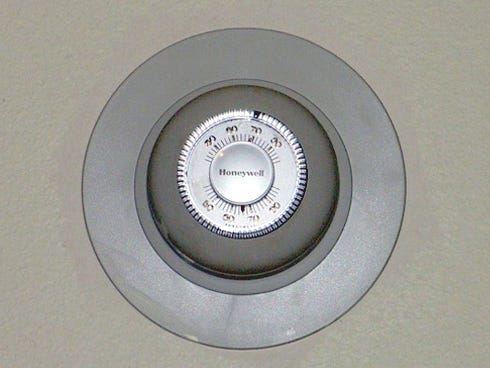
CRESTVIEW — In Northwest Florida, summertime means the end of the school year, sand, sun, vacations and the occasional ballgame. But, with above-normal temps predicted for the Southeast, it can also mean higher energy bills as we try to keep our homes cool.
So what can Gulf Power customers do to stay cool and keep their energy bill in check while AC units run longer and harder? By following these helpful tips and strategies, customers can help prevent high temperatures from heating up their energy bills.
●Set your thermostat and leave it. During the summer, your air conditioner is the biggest consumer of energy. For many homes, it accounts for more than half of the summer energy bill. Making small changes to the way you use your thermostat can go a long way in saving energy.
For every degree below 78 degrees, you’ll use 10 percent more energy to cool your residence. Set your thermostat at 78 degrees or higher. For every degree below that setting, you’ll use 10 percent more energy on the cooling portion of your electricity bill.
●Set the thermostat even higher when at work or away from home for long periods of time, but no more than five degrees higher.
●Change or clean your air conditioner filter regularly. Dirty filters restrict airflow and reduce efficiency. Also, clear away objects that may be blocking indoor a/c vents such as chairs, furniture or pillows.
●Use your ceiling fan for more comfort. Remember to run the fans counter-clockwise during the summer months. Only turn them on when you’re in the room. Ceiling fans only cool people, not rooms.
●Let your air conditioner breathe. Clear outside AC units of weeds, plants or brush so they can run more efficiently.
●Avoid placing lamps or television sets near your room air-conditioning thermostat. The thermostat can sense heat from these appliances.
●Turn down the temperature of your water heater to at least 120 degrees. You’ll not only save energy, you can avoid scalding temperatures.
●Keep the blinds closed on the sunny side of your home during the day and open at night. This is a no-cost way to keep your home a little cooler.
●Give your AC a tune-up. Running an inefficient AC system can result in high monthly bills.
INSULATION
●Seal up your cooling system and maximize efficiency so hot air can’t sneak into your home through doors, walls or a poorly insulated attic. Make sure there are no tiny holes in your ducts that could cause your air conditioner to work harder.
●Increase attic insulation, which can save you up to 30 percent on cooling and heating costs. Insulation is measured in R-value, which is a measure of resistance to heat flow. So the higher the R-value, the better the insulation value.
Experts recommend you use an R-value of R-38 in ceiling areas.
●Check your windows and doors for air leaks. Install weather stripping or caulking if needed.
●Close unused air vents. If you have central AC you can close air vents in rooms you’re not using so you’re not paying to cool them.
LIGHTING
●Turn off lights that aren’t in use.
●Use fluorescent lighting or LEDs when possible. They last about 10 times longer than incandescent bulbs. And, they can produce four times more light than standard incandescent bulbs for the same amount of energy.
●Use one large bulb instead of several small ones in areas where bright light is needed.
●Use smaller lamps in work areas, like sewing areas and computer desks, so you don’t light the entire room.
●Lighter-colored walls, drapes, blinds and upholstery reflect light. Dark colors absorb heat and require more artificial light.
REFRIGERATOR
●Choose the right size refrigerator for your needs. Larger models use more energy. Open and close the refrigerator door quickly. Know what you want before opening the door.
●Make sure your refrigerator door seals are airtight. Check it by closing a piece of paper in the door, half in and half out. If you can pull the paper out easily, you may need to make some adjustments or replace the seal.
●Keep your food covered. Moisture buildup in the refrigerator makes the air inside harder to cool.
DRYER AND DISHWASHER
●Run the dishwasher, dryer and the stove after the sun goes down to avoid adding heat to your house.
●Turn off the dishwasher drying cycle if you don’t need dishes right away.
●Wait until the dishwasher is full before running it. Partial loads can use just as much water and power as a full load.
●Wash clothes in cold water and make sure to clean the filter after each use.
Gulf Power customers can get a free Energy Checkup at http://www.gulfpower.com/residential/earthcents/energy-checkup.cshtml or call 1-877-655-4001 for an on-site appointment. Energy experts will analyze your home and electricity use and look for ways to make your home more energy efficient.
This article originally appeared on Crestview News Bulletin: Gulf Power offers Northwest Florida energy-saving tips, free check-up
